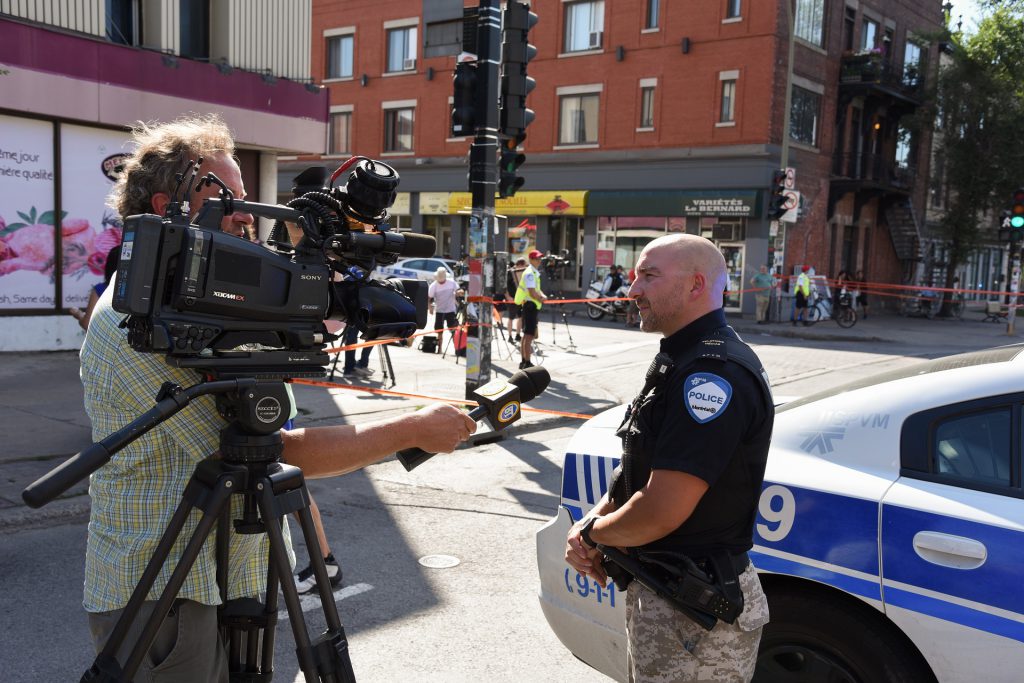A growing number of police departments have begun using body-worn cameras as tools for transparency and documentation of civilian interactions.
According to the Police Executive Research Forum, by 2020, nearly 79 percent of local police officers worked in departments that used BWCs, and all departments serving 1 million or more residents reported using body cameras. Similar increases were reported in sheriff offices, with more than 68 percent using BWCs in 2020.
Through the years there have been many claims about the perceived benefits and negative effects of body cameras, not only from the media and public opinion but from police officers themselves.
Positive Impacts of Body-Worn Cameras

For many officers, video footage from body-worn cameras can feel like a layer of protection. It provides a clearer understanding of what happens during their public encounters and offers a more complete narrative of what transpired when the facts of an incident are contested.
Body cameras help to promote conscientiousness and use of force avoidance in law enforcement. According to the PERF report, in around half of the studies conducted on the use of force, officers wearing cameras used force less than officers without cameras.
The report also says that BWCs have reduced the number of citizen complaints against law enforcement. According to the report, it was difficult to ascertain whether complaints went down because officers behaved differently on camera, or because citizens filed fewer unfounded complaints, knowing the interactions were recorded. Either way, fewer complaints is a positive result.
The Necessity of BWC: Examples from Michigan & Texas

(Image source: flickr.com/photos/joeross)
When body-worn cameras were first introduced as a law enforcement tool, some were skeptical about their usefulness. But they have since proven to be a necessity.
A year after Detroit launched a $5.2 million program to outfit officers with body cameras, footage has both exonerated and implicated police officers accused of wrongdoing. The videos have also provided insight into what went right or wrong during critical incidents, allowing supervisors to train officers accordingly, said Assistant Chief, James White.
In 2018, a Texas state trooper’s body camera refuted sexual assault claims a woman made against the trooper after she was pulled over for allegedly driving while intoxicated. The allegations were promptly and conclusively refuted after a review of video footage gathered from the officer’s body-worn camera revealed no wrongdoing on the Trooper’s part.
BWC Cost Could be an Obstacle for Police Departments
While implementing body-worn cameras may have significant benefits for law enforcement, the cost of implementation can prove to be a barrier. Government Technology recently reported that Massachusetts police departments were embracing BWC, but finding the costs to be prohibitive. In addition to investing in the camera units, there is also the cost of managing the cameras and the associated data.
AI-powered Argus Body Worn Camera technology from Kustom Signals offers a host of proven advantages for law enforcement, including features that extend far beyond typical body-worn camera capabilities. Argus BWC:
- Capable of wirelessly offloading event recordings
- Allows agencies to submit custom phrases for Argus to learn
- Automatic event detection when intense movement is detected, the smart holster sensor is activated, or an officer is down
- Sends alerts to administration to allow for situation assessment
- Allows administration to see what officers see via live streaming and able to find officers via GPS
- Features 4 microphones for improved audio recording
- Integrates with Argus In-Car Video
BWC Innovation and Assistance from Kustom Signals
Argus BWC also integrates with Kustom Signals’ innovative digital evidence management technology. Argus Data Vault help law enforcement agencies effectively manage the increasing volume and complexity of digital evidence. Consistent and reliable data management practices help agencies maintain legal and procedural integrity, enhancing investigative and prosecutorial capabilities, as well as ensuring security and compliance. This powerful and highly configurable digital evidence management solution automatically and securely manages video evidence, making things easier for the agency and officers.
If funding is an issue for your agency, assistance is available through Kustom Signals and PoliceGrantsHelp. Through this program, your law enforcement agency has the opportunity to receive grant assistance in many areas, including funds to invest in our industry-leading body-worn cameras, in-car video technology and speed enforcement equipment. Learn more about this unique opportunity.
For additional information about Argus and to place your order, contact us today.

